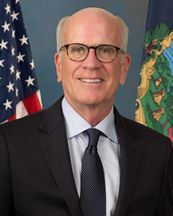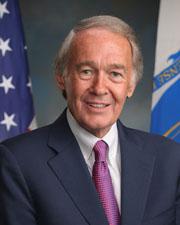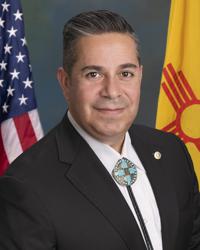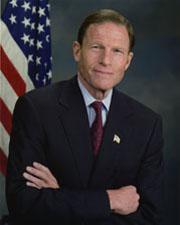0
0
0
A bill to amend the Consumer Product Safety Act to strike provisions relating to the maximum civil penalties for violations of product safety standards.
1/26/2024, 5:15 AM
Summary of Bill S 3667
Bill 118 s 3667, also known as the Consumer Product Safety Act Amendment, aims to make changes to the existing Consumer Product Safety Act. The main focus of this bill is to remove certain provisions that pertain to the maximum civil penalties for violations of product safety standards.
Currently, the Consumer Product Safety Act includes specific guidelines for the maximum civil penalties that can be imposed on companies or individuals who violate product safety standards. This bill seeks to strike these provisions, which means that there would no longer be a set limit on the fines that can be imposed for such violations.
By removing these restrictions on civil penalties, supporters of the bill argue that it will provide greater flexibility for enforcement agencies to hold companies and individuals accountable for failing to meet product safety standards. This could potentially lead to stronger enforcement actions and better protection for consumers. Opponents of the bill, however, may argue that removing the maximum civil penalties could result in excessive fines being imposed on businesses, which could have negative economic consequences. They may also raise concerns about potential inconsistencies in enforcement actions without clear guidelines on penalty limits. Overall, Bill 118 s 3667 is a proposed amendment to the Consumer Product Safety Act that aims to remove provisions related to maximum civil penalties for violations of product safety standards. The potential impact of this bill on consumer protection and business regulation remains a topic of debate among lawmakers and stakeholders.
Currently, the Consumer Product Safety Act includes specific guidelines for the maximum civil penalties that can be imposed on companies or individuals who violate product safety standards. This bill seeks to strike these provisions, which means that there would no longer be a set limit on the fines that can be imposed for such violations.
By removing these restrictions on civil penalties, supporters of the bill argue that it will provide greater flexibility for enforcement agencies to hold companies and individuals accountable for failing to meet product safety standards. This could potentially lead to stronger enforcement actions and better protection for consumers. Opponents of the bill, however, may argue that removing the maximum civil penalties could result in excessive fines being imposed on businesses, which could have negative economic consequences. They may also raise concerns about potential inconsistencies in enforcement actions without clear guidelines on penalty limits. Overall, Bill 118 s 3667 is a proposed amendment to the Consumer Product Safety Act that aims to remove provisions related to maximum civil penalties for violations of product safety standards. The potential impact of this bill on consumer protection and business regulation remains a topic of debate among lawmakers and stakeholders.
Current Status of Bill S 3667
Bill S 3667 is currently in the status of Bill Introduced since January 25, 2024. Bill S 3667 was introduced during Congress 118 and was introduced to the Senate on January 25, 2024. Bill S 3667's most recent activity was Read twice and referred to the Committee on Commerce, Science, and Transportation. as of January 25, 2024
Bipartisan Support of Bill S 3667
Total Number of Sponsors
1Democrat Sponsors
1Republican Sponsors
0Unaffiliated Sponsors
0Total Number of Cosponsors
8Democrat Cosponsors
8Republican Cosponsors
0Unaffiliated Cosponsors
0Policy Area and Potential Impact of Bill S 3667
Primary Policy Focus
Alternate Title(s) of Bill S 3667
A bill to amend the Consumer Product Safety Act to strike provisions relating to the maximum civil penalties for violations of product safety standards.
A bill to amend the Consumer Product Safety Act to strike provisions relating to the maximum civil penalties for violations of product safety standards.
Comments
Sponsors and Cosponsors of S 3667
Latest Bills
Providing amounts for the expenses of the Committee on Ethics in the One Hundred Nineteenth Congress.
Bill HRES 131December 12, 2025
Providing for congressional disapproval under chapter 8 of title 5, United States Code, of the rule submitted by the Bureau of Land Management relating to "Central Yukon Record of Decision and Approved Resource Management Plan".
Bill HJRES 106December 12, 2025
Expressing the sense of the House of Representatives in condemning the Government of the People's Republic of China for its harassment and efforts to intimidate American citizens and other individuals on United States soil with the goal of suppressing speech and narratives the People's Republic of China finds unwelcome.
Bill HRES 130December 12, 2025
Providing for congressional disapproval under chapter 8 of title 5, United States Code, of the rule submitted by the Bureau of Land Management relating to "North Dakota Field Office Record of Decision and Approved Resource Management Plan".
Bill HJRES 105December 12, 2025
Providing for congressional disapproval under chapter 8 of title 5, United States Code, of the rule submitted by the Bureau of Land Management relating to "Miles City Field Office Record of Decision and Approved Resource Management Plan Amendment".
Bill HJRES 104December 12, 2025
Providing amounts for the expenses of the Select Committee on the Strategic Competition Between the United States and the Chinese Communist Party in the One Hundred Nineteenth Congress.
Bill HRES 104December 12, 2025
Critical Access for Veterans Care Act
Bill S 1868December 12, 2025
OATH Act of 2025
Bill S 1665December 12, 2025
A bill to extend the authority for modifications to the Second Division Memorial in the District of Columbia.
Bill S 1353December 12, 2025
Saving Our Veterans Lives Act of 2025
Bill S 926December 12, 2025




